Recently, our engineers were invited to Sany Renewable Energy Co., Ltd. to debug our GDSL-6300A temperature rise high current generator equipment. This commissioning task involves the aluminum bar (20MM*150) and the large current line (20mm*150mm*5m, two per phase) of the wind turbine to ensure the stability and efficiency of the current transmission. By measuring the actual current and the displayed current through the clamp meter, we found that the two are basically the same, and with the rise of temperature, the output voltage of the regulator basically does not change.
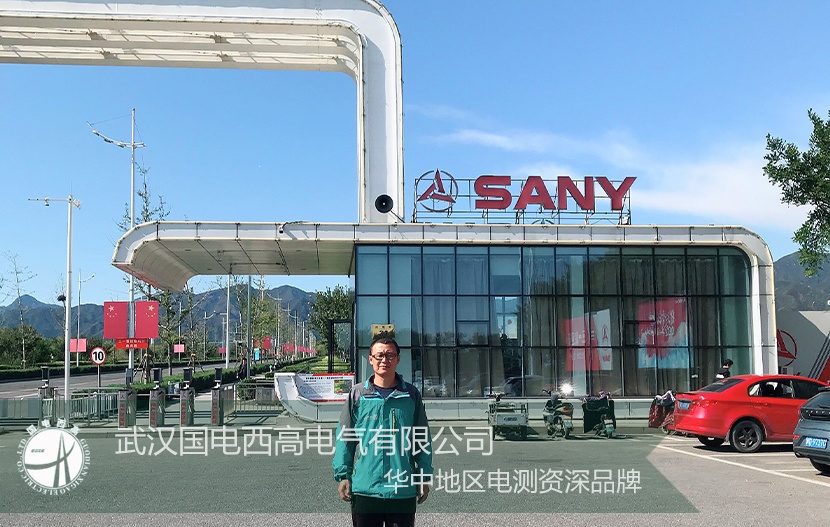
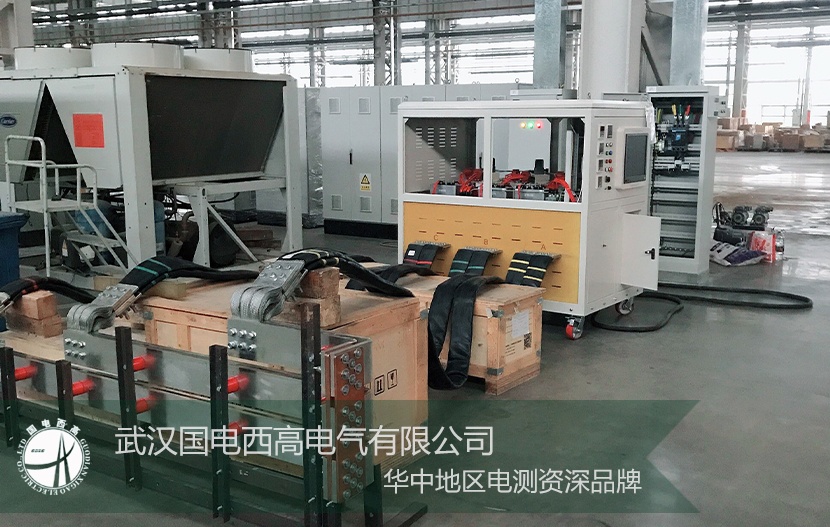
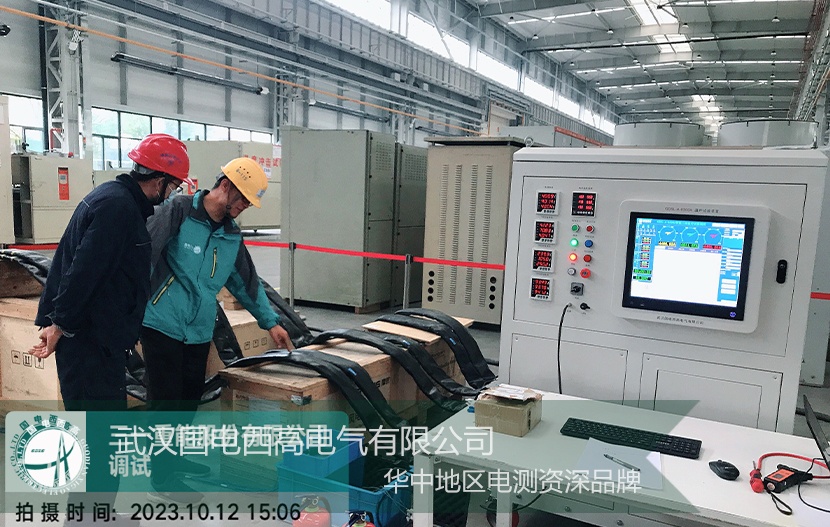
During the debugging process of up to 6 and a half hours, the output voltage of the regulator basically did not change as the temperature rose. Specifically, the output current of the regulator is maintained at about 40 amps for the AC phase and 70 amps for the B phase, while the input current of the DDK device is 94 amps. When the current reaches 4500 amps, the AC phase opening voltage is 7.7V, the AB phase opening voltage is 5.5V, and the BC phase opening voltage is 5.8V. According to theoretical calculations, 4500/6300=71%*8V=5.6V or so.
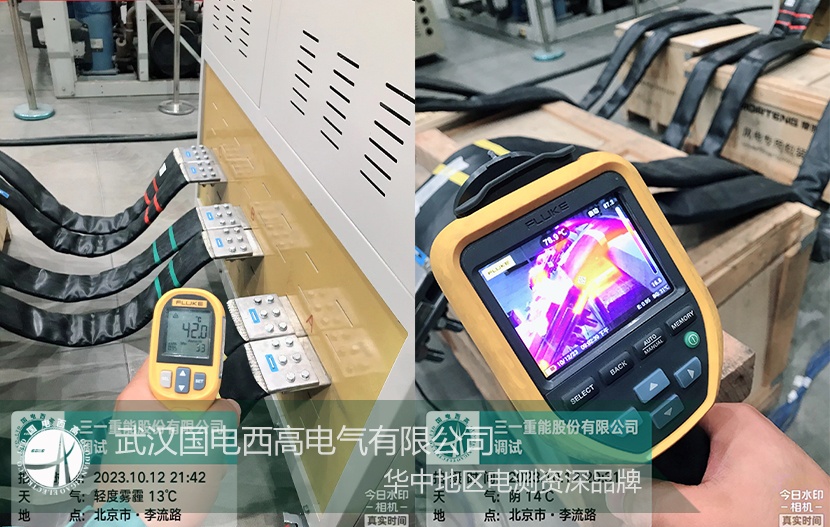
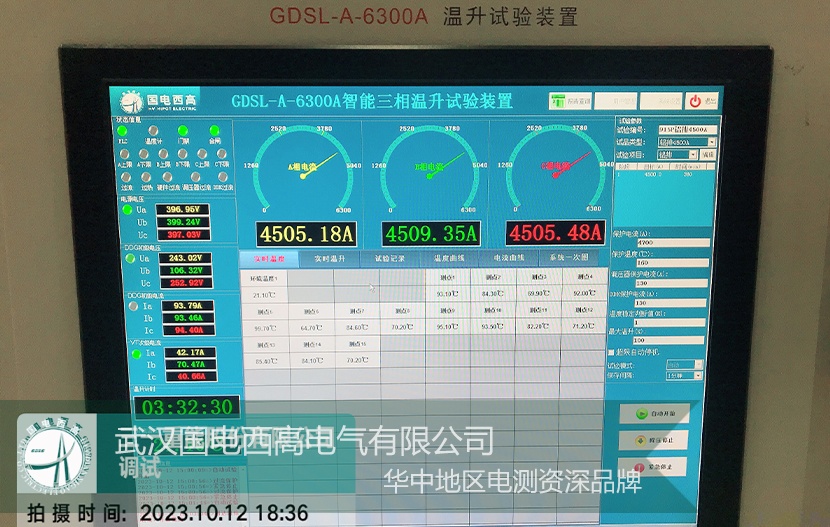
During the process, engineers monitored the temperature of the subjects in real time. The results show that the temperature of the subject is high, and the temperature of the B phase of the regulator inside the equipment is about 50 degrees, the temperature of the AC phase is slightly higher than 30 degrees, the DDK output temperature is basically about 40 degrees, the temperature of the compensation capacitor is close to 40 degrees, and the contact temperature is also maintained at about 50 degrees.
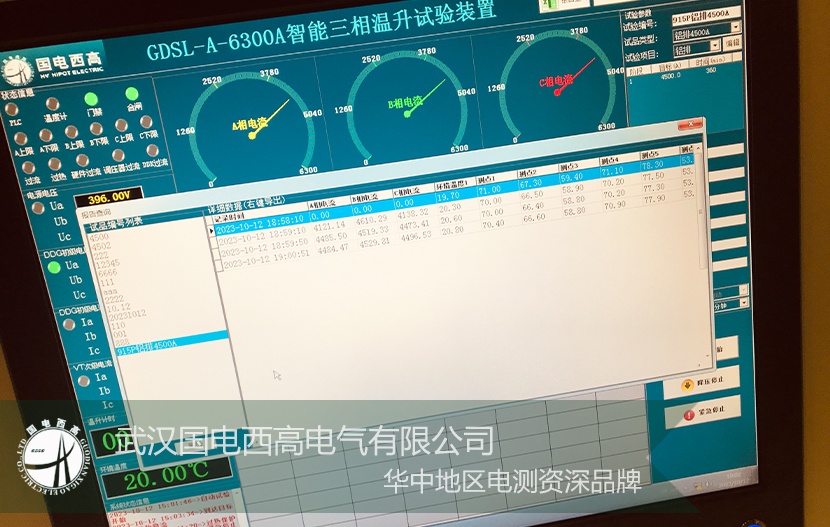
The successful commissioning marks the professional ability and precise operation technology of HV HIPOT engineers in the field of GDSL-6300A temperature rise high current generator. Through their efforts, the stable output of the equipment has been achieved, which provides a strong support for the generator commissioning of Sany Renewable Energy Co., LTD. This has also further promoted the development and application of wind power generation technology, making a positive contribution to the field of renewable energy.
Post time: Nov-16-2023
